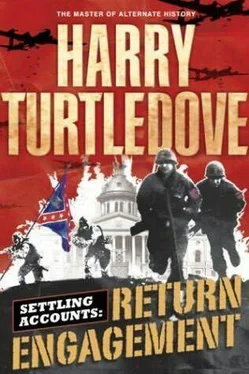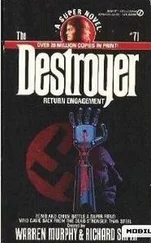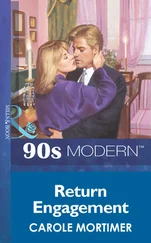Harry Turtledove - Return engagement
Здесь есть возможность читать онлайн «Harry Turtledove - Return engagement» весь текст электронной книги совершенно бесплатно (целиком полную версию без сокращений). В некоторых случаях можно слушать аудио, скачать через торрент в формате fb2 и присутствует краткое содержание. Жанр: История, на английском языке. Описание произведения, (предисловие) а так же отзывы посетителей доступны на портале библиотеки ЛибКат.
- Название:Return engagement
- Автор:
- Жанр:
- Год:неизвестен
- ISBN:нет данных
- Рейтинг книги:5 / 5. Голосов: 1
-
Избранное:Добавить в избранное
- Отзывы:
-
Ваша оценка:
- 100
- 1
- 2
- 3
- 4
- 5
Return engagement: краткое содержание, описание и аннотация
Предлагаем к чтению аннотацию, описание, краткое содержание или предисловие (зависит от того, что написал сам автор книги «Return engagement»). Если вы не нашли необходимую информацию о книге — напишите в комментариях, мы постараемся отыскать её.
Return engagement — читать онлайн бесплатно полную книгу (весь текст) целиком
Ниже представлен текст книги, разбитый по страницам. Система сохранения места последней прочитанной страницы, позволяет с удобством читать онлайн бесплатно книгу «Return engagement», без необходимости каждый раз заново искать на чём Вы остановились. Поставьте закладку, и сможете в любой момент перейти на страницу, на которой закончили чтение.
Интервал:
Закладка:
Lulu knocked on the door. Without waiting for his reply, she stuck her head in the office and said, "Professor FitzBelmont is here to see you, Mr. President."
"Send him in," Jake said resignedly, wondering why he'd given the man an appointment in the first place. "I promised him, what-ten minutes?"
"Fifteen, Mr. President." Lulu spoke in mild reproof, as if Featherston should have remembered. And so he should have, and so he had-but he'd done his best to get out of what he'd already agreed to. Lulu was better at holding him to the straight and narrow path than Al Smith dreamt of being. She ducked out, then returned with a formal announcement: "Mr. President, here is Professor Henderson V. FitzBelmont of Washington University."
Henderson V. FitzBelmont looked like a professor. He wore rumpled tweeds and gold-framed eyeglasses. He had a long, horsey face and a shock of gray hair that resisted both oil and combing. When he said, "Very pleased to meet you, Mr. President," he didn't tack on a ringing, "Freedom!" the way anybody with an ounce of political sense would have done.
"Pleased to meet you, too." Jake stuck out his hand. FitzBelmont took it. To the President's surprise, the other man had a respectable grip. His hand didn't jellyfish under Featherston's squeeze. Obscurely pleased, Featherston waved him to the chair in front of his desk. "Why don't you take a seat? Now, then-you're a professor of physics, isn't that right?"
"Yes, sir. That is correct." FitzBelmont talked like a professor, too. His voice had the almost-damnyankee intonation so many educated men seemed proud of, and a fussy precision to go with it, too.
"Well, then…" Jake also sat, and leaned back in his chair. "Suppose you tell me what a professor of physics reckons I ought to know." He didn't quite come out and say that a professor of physics couldn't tell him anything he needed to know, but that was in his own voice and manner.
Henderson V. FitzBelmont didn't seem to notice. That didn't surprise Featherston, and did amuse him. The professor said, "I was wondering, Mr. President, if you were familiar with some of the recent work in atomic physics coming out of the German Empire."
Jake didn't laugh in his face, though for the life of him he couldn't have told why not. All he said was, "Sorry, Professor, but I can't say that I am." Or that I ever wanted to be, either. He looked at his watch. Damned if he would give this fellow a minute more than his allotted time.
"The Germans have produced some quite extraordinary energy releases through the bombardment of uranium nuclei with neutrons. Quite extraordinary," Professor FitzBelmont said.
"That's nice," Jake said blandly. "What does it mean? What does it mean to somebody who's not a professor of physics, I ought to say?"
He didn't know how he expected FitzBelmont to answer. The tweedy academic made an unimpressive fist. "It means you could take this much uranium-the right kind of uranium, I should say-and make a blast big enough to blow a city off the map."
"Wait a minute," Jake said sharply. "You could do that with one bomb?"
"One bomb," Professor FitzBelmont agreed. "If the theoretical calculations are anywhere close to accurate."
Featherston scratched his head. He'd heard things like that before. Theory promised the moon, and usually didn't even deliver moonshine. "What do you mean, the right kind of uranium? Up till now, I never heard of uranium at all, and I sure as hell never heard of two kinds of it."
"As you say, sir, there are two main kinds-isotopes, we call them," the professor answered. "One has a weight of 238. That kind is not explosive. The other isotope only weighs 235. That kind is, or seems to be. The trick is separating the uranium-235 from the uranium-238."
"All right." Featherston nodded. "I'm with you so far-I think. The 235 is the good stuff, and the 238 isn't. How much 235 is there? Is it a fifty-fifty split? One part in three? One part in four? What?"
Henderson V. FitzBelmont coughed. "In fact, Mr. President, it's about one part in a hundred and forty."
"Oh." Now Jake frowned. "That doesn't sound so real good. How do you go about separating it out, then?"
The professor also frowned, unhappily. "There is, as yet, no proven method. We cannot do it chemically; we know that. Chemically, the two isotopes are identical, as any isotopes are. We need to find some physical way to capitalize on their difference in weight. A centrifuge might do part of the job. Gaseous diffusion might, too, if we can find the right kind of gas. The only candidate that seems to be available at present is uranium hexafluoride. It is, ah, difficult to work with."
"How do you mean?" Featherston inquired.
"It is highly corrosive and highly toxic."
"Oh," Jake said again. "So you'd need to do a lot of experimenting before you even have a prayer of making this work?" Professor FitzBelmont nodded. Jake went on, "How much would it cost? How much manpower would it take? There's a war on, in case you hadn't noticed."
"I had, Mr. President. I had indeed," FitzBelmont said. "I confess, it would not be cheap. It would not be easy. It would not be quick. It would require a very considerable industrial effort. I do not minimize the difficulties. They are formidable. But if they can be overcome, you have a weapon that will win the war."
Jake Featherston had heard that song before. Crackpot inventors sang it every day. Professor FitzBelmont didn't seem like the worst kind of crackpot, the kind with an obviously unworkable scheme for which he wanted millions of dollars-all of them in his own personal bank account. That kind of crackpot always said things would be easy as pie. Sometimes he knew he was lying, sometimes he didn't.
Because FitzBelmont seemed basically honest, Jake let him down as easy as he could. "If you'd come to me with this here idea six years ago, Professor, I might have been able to do something for you."
"Six years ago, sir, no one in the world had the slightest idea this was possible," FitzBelmont said. "Word of the essential experiment was published in a German journal about eighteen months ago."
"Fine. Have it your way. But you don't see the point," Featherston said. "The point is, right now we are in the middle of a war. We're stretched thin. We're stretched thin as can be, matter of fact. I can't take away God knows how much manpower and God knows how much money and throw all that down a rathole that won't pay off for years and may not pay off at all. You see what I'm saying?"
Professor FitzBelmont nodded stiffly. "Yes, sir, I do understand that. But I remain convinced the benefits of success would outweigh all these costs."
Of course you do. You wouldn't be here bending my ear if you didn't, Jake thought. But that doesn't mean you're right. He stayed polite. One of the drawbacks of being President, he'd discovered, was that you couldn't always call a damn fool a damn fool to his face. Sometimes, no matter how big a damn fool he was, you knew you might need him again one of these days.
After he'd shown Professor FitzBelmont the door, Jake let out a sigh. For a moment, the man had had him going. If you could take out a whole city with just one bomb, that would really be something. It sure would-if you could. But odds were you couldn't, and never would be able to. Odds were the professor wanted the Confederate government to pay for a research project he couldn't afford any other way. Odds were nothing but a few papers with FitzBelmont's name on them would ever come out of the research project. Since becoming President, Jake had become wise in the ways of professors. He'd had to.
He lit a cigarette, sucked in smoke, and blew a wistful cloud at the ceiling. It was too goddamn bad, though.
Distant thunder muttered, off to the north. Jake's lips tightened on the cigarette. The day was fine and clear. Oh, it was hot and muggy, but it was always going to be hot and muggy in Richmond this time of year. It wasn't thunder. It was the artillery duel that went on between Yankee and Confederate forces. If the United States had wanted to drive for Richmond the way the Confederates had driven for Lake Erie, the Confederate defenders would have had a bastard of a time holding them back.
Читать дальшеИнтервал:
Закладка:
Похожие книги на «Return engagement»
Представляем Вашему вниманию похожие книги на «Return engagement» списком для выбора. Мы отобрали схожую по названию и смыслу литературу в надежде предоставить читателям больше вариантов отыскать новые, интересные, ещё непрочитанные произведения.
Обсуждение, отзывы о книге «Return engagement» и просто собственные мнения читателей. Оставьте ваши комментарии, напишите, что Вы думаете о произведении, его смысле или главных героях. Укажите что конкретно понравилось, а что нет, и почему Вы так считаете.












